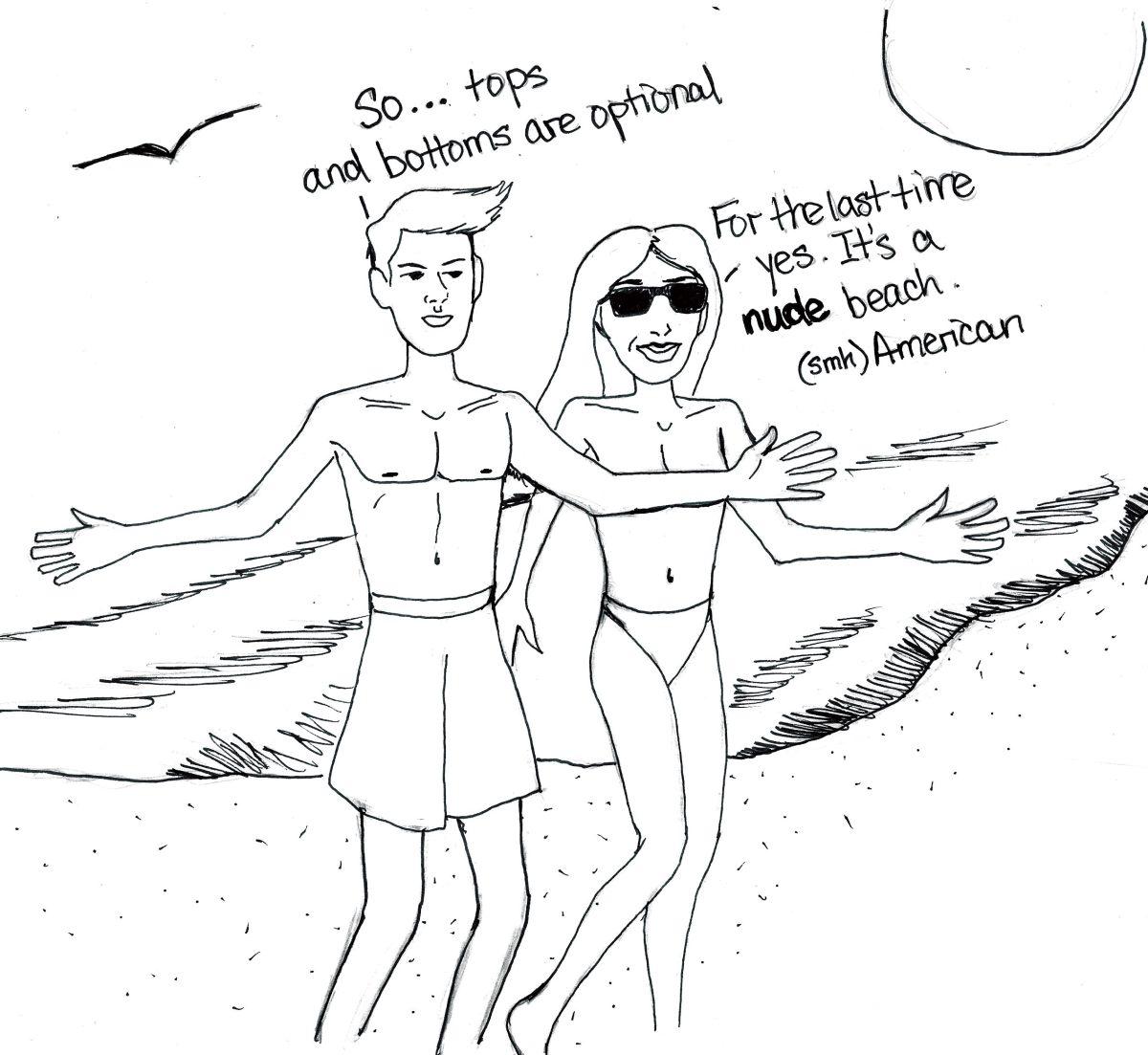During the 2004 Super Bowl, the New England Patriots beat the Carolina Panthers by three points in an incredible fourth quarter. Unfortunately, the game was marred by Janet Jackson and Justin Timberlake’s halftime show, claiming all the postgame attention. It created slang such as “Nipplegate” and overshadowed the fantastic effort played by both teams. The infamous “wardrobe malfunction” didn’t have to be a big deal, but the United States is sensitive when it comes to the human body.
On the opposite end of the spectrum are places such as the Red Light District in Amsterdam, Netherlands. People walk down narrow streets and stare at nearly naked women who are legally advertising their assets through windows adorned with red lights.
Brazilian, Greek, Spaniard and German students all stated how unnecessarily sensitive Americans are to subjects concerning sex and gender. If something like Nipplegate had occurred in any of these countries, no one would have given it a second thought. They hardly even remembered what I was talking about when I mentioned it. They had a more laid back opinion on the matter. Why does the U.S. need to make such a big deal about nudity in the public eye?
Public bathrooms are another example of the prudish attitude in the U.S. Men and women go to completely separate bathrooms with individual stalls. European countries often have conjoined bathrooms with mixed gender stalls and everyone walks out to the same sinks. At night, large platforms only for men rise out of the ground in public squares and plazas, completely open to the area around them.
By completely separating the two sexes and blowing situations such as Nipplegate out of proportion, we instill this sensitivity in our kids.
I remember watching the Super Bowl, and as the event occurred, I hardly noticed it. But the adults’ reactions around me exacerbated the intensity of the situation. If, for example, the adults had not acknowledged it, I might have thought nothing of it. Kids are impressionable, so I learned it was a big deal because my parents and their friends made a fuss. I understand that it was a mistake, but not one that deserved such outcry.
I visited the Red Light District in Amsterdam last weekend and walked among the narrow streets with students from Greece, Spain and Brazil. Soon, it was obvious I was the American in the group. They were surprised by what they were seeing, too, but I could hardly process what was happening. Seeing those women was emotionally overloading for me. After a lifetime in the U.S., I didn’t know what to think about what I was seeing.
The public Red Light District may shock visitors from around the world, but tourists from the U.S. are sheltered to the point that the experience is disturbing. There’s a reason there are no topless or nude beaches in the U.S. Such public hysteria conditions us to be easily scarred by nudity and sexuality, despite what many Americans experience behind closed doors. Sometimes, a little extra skin shouldn’t ruin a walk down the street or eclipse a great game. Maybe we could learn something from the rest of the world and shrug it off.











